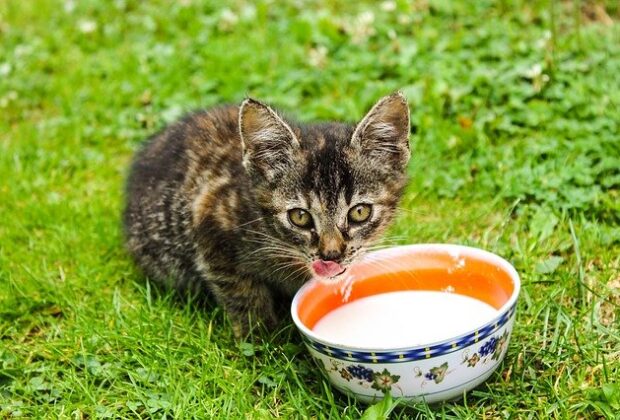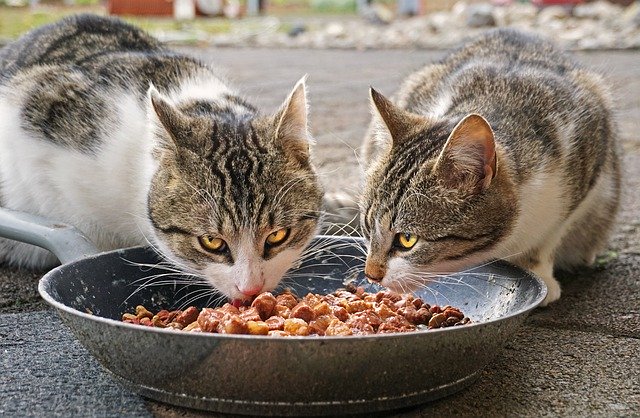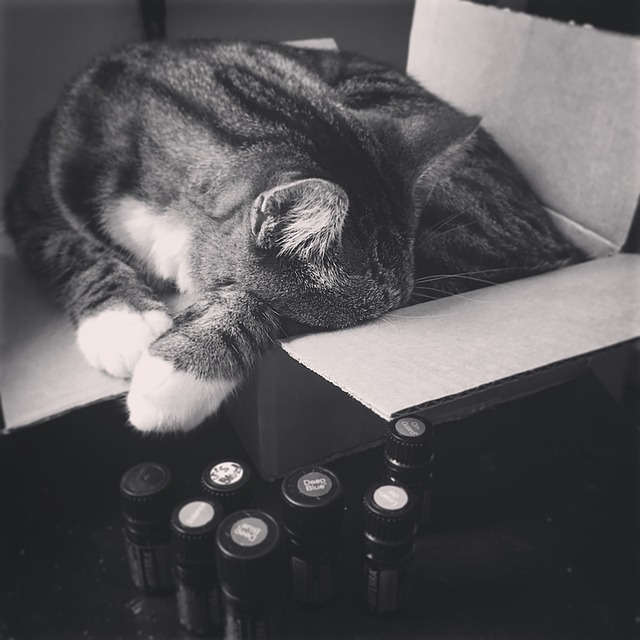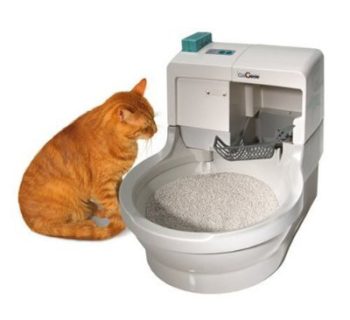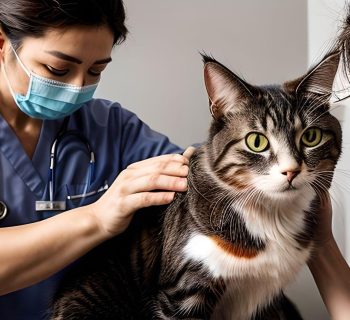If you have just brought a new kitten into the family, or perhaps you have come across a stray, you may be wondering what to feed it. After all, you want to give it the best care possible, which includes providing it with the best nutrition to grow into a fit, healthy adult cat. So, when they are young, what kind of milk can you give a kitten? We answer that below, along with other relevant questions.
The Type of Milk to Give a Kitten
Many cat experts believe that powdered milk is best for kittens instead of the liquid formula. Some, however, prefer the canned liquid formula. Whichever you opt for, you want to make sure that it is of high quality and purchased from trusted sources such as pet products, physical stores, online pet stores, or at the vet. You also want to make sure that the milk is fresh, be it powdered or liquid. Do not give the milk to your feline if it smells rancid, spoilt, or like chemicals or cheese. If expired, avoid using.
Also, keep all opened cat milk formulas inside the refrigerator, whether canned or powdered, as they spoil quickly once opened.
Frequently Asked Questions About Cat Milk
Answered here are some FAQs about cat milk;
How much milk does a kitten need?
Most pet/cat experts say newborn kittens should get around 13 -18 milliliters of kitten milk replacement formula for every 100 grams of body weight.
According to them, the amount should be increased gradually as the kitten grows older, gets healthier, and bigger. Healthy kittens are usually active and quick to respond to their surroundings. They also get hungry quicker hence the need to have them fed regularly. That said, at about the fourth week, kittens should be introduced to regular cat food and then weaned entirely at around the sixth week.
Should kittens drink cow milk?
Many cats can drink some quantity of cow’s milk only after due precautions. Avoid feeding whole cow milk or cream-containing cow milk to cats because of its high sugar and fat content. If you can, provide your kitten organic skim milk or milk with only minimal fat content.
Another great cow milk option for kittens is lactose-free cow milk. This is excellent for lactose-intolerant cats or cats with digestive issues.
Should I feed my cat pasteurized milk?
Avoid feeding your cat pasteurized cow milk as it has been found to cause skeletal problems/abnormalities, reproductive issues, and developmental problems in felines.
Should my cat drink sweetened condensed milk?
Some cat experts do not recommend feeding cats sweetened condensed milk. Many also advise against feeding your cat evaporated milk. The reason? These types of milk contain more carbohydrates than allowed for felines and, as such, could cause severe health issues.
Should my cat drink goat milk?
Yes, your cat can generally drink goat milk if it can tolerate milk. However, ensure that the milk is raw. While goat milk is slightly lower in lactose levels, it has a higher mineral and vitamin content than cow’s milk and also contains some taurine. In some studies conducted on mice, goat milk was more easily digested than cow milk and allowed for more absorption and copper. In the same studies, weight gain improved in the mice while the cholesterol levels were significantly lower.
Should cats drink soy milk?
Some cats are allergic to soy milk. While some can handle soy milk reasonably well, keep in mind that the milk is made from soybeans, and cats are carnivores and, as such, should not be fed soybeans or soy products. Our cats’ digestive systems do not have enough enzymes to handle plant proteins.
Can my cat drink coconut milk?
Is coconut milk healthy for your cat? No, cats should not drink coconut milk as it contains high amounts of fat and oil. Like soy, our cats cannot properly digest plant proteins, and coconuts belong in this category.
Should I give my cat almond milk?
While almond milk is lactose-free and not considered harmful to cats, it may still be dangerous to feed it to your cat.
Almond milk contains high amounts of fats and oils, and as with most high-fat foods, it can cause diarrhea and vomiting and lead to pancreatitis in some cases.
Before Giving Milk to a Stray
Wait and Watch
Young felines can sometimes be separated from their mom when she searches for food or during relocation. Yes, just like their humans, our feline friends can relocate by themselves, especially feral ones. So, before you pick the kittens, you want to determine if the mother will return for them or are truly abandoned.
Do this by keeping some distance away from the felines (40 or more feet is optimal). You do not want to frighten off the mother from approaching the kittens. Cats will stay away until the area is entirely free of humans, and the longer you hang around her kittens, the longer she is likely to stay away.
Before you leave;
Check that the kittens are not in danger of their environment. You want to ensure that you are not leaving them at risk of environmental factors such as snowfall, rain, and even wild animals or canines.
Also, check that children or adults in the neighborhood will not harm the kittens and that the area is also free of heavy car, motorcycle, and foot traffic. If you think it is while also keeping in mind that the feline mother may spend more than a few hours away, leave them in place and stay away as you watch for as long as you can until their mother returns. Only move the kittens if you think that they may not survive the environment for too long.
If the cat mother never comes…………………………
Unless you plan to care for the kittens, you should immediately alert your local rescue group, shelter, or vet to pick them up for better initial care.
If you want a more comprehensive guide to determine as to whether a mother has abandoned her kittens then read here.
What Kind of Milk Should I Give My Kitten? Conclusion
Many young felines will tolerate milk replacement formulas with no problem. Hence, some may not need some of the alternatives discussed above. However, before starting your kitten on any milk, please consult with your vet for his opinion. Even after he approves of it, keep a close watch on your kitten for possible adverse reactions such as diarrhea and vomiting from the new milk. If these reactions continue longer than a day, have a vet check your dog without wasting much time.
About the Author
Kirsten Heggarty
Kirsten created The Pet Handbook with the aim of sharing her knowledge about pets, pet food, healthy habits, and more. All of her advice is based on years of her own experience with her pets, and feedback that she has received from grateful readers about her tips. If you want to know more please read the About Me page.

